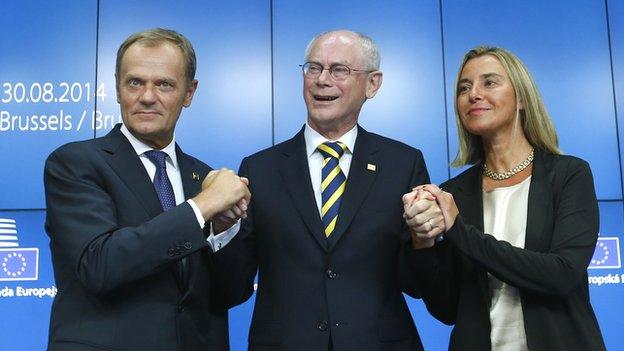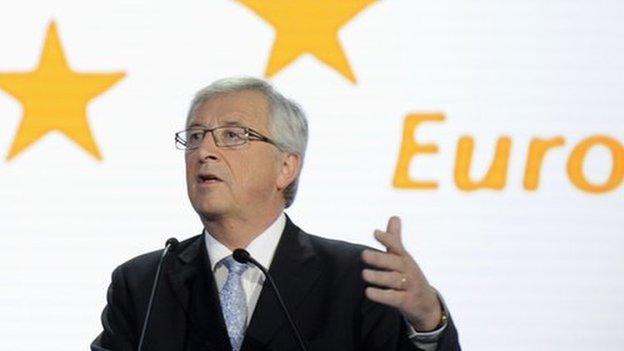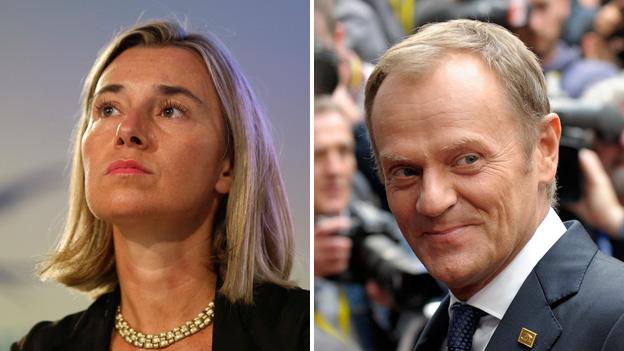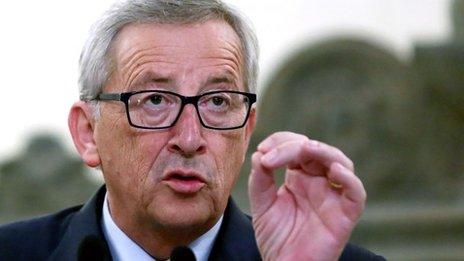Questions raised over British candidate for EU job
- Published
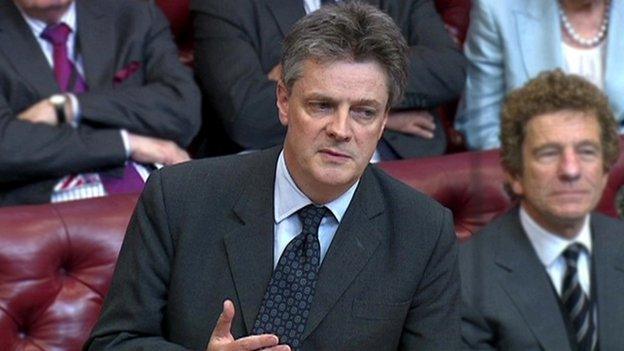
Lord Hill has been influential at Westminster but is little known in the EU
Britain's candidate for European Commissioner is to face a "very tough" hearing over his suitability for the job of overseeing financial services.
Jonathan Hill, former leader of the House of Lords, will appear before the European economic and monetary affairs committee on 1 October.
But leading Green MEP Philippe Lamberts says he thinks ex-lobbyist Lord Hill's appointment is "a joke".
Socialist Gianni Pittella questioned whether the peer could do the job.
Lord Hill was offered the prestigious post of overseeing financial services in the new 28-strong European Commission by EC President Jean-Claude Juncker earlier this month.
The move delighted UK Prime Minister David Cameron who had campaigned hard for Britain to be given a top economic position.
'A provocation'
But some MEPs are concerned about the wisdom of giving a job that will implement banking inside the eurozone to a Brit from outside the eurozone.
Mr Lamberts, who met Lord Hill in Strasbourg this week, said he was not impressed by his knowledge of financial regulation and believes he will be given a rough ride on October 1.
He told BBC Radio 4's Today programme: "The first time I heard about this, I thought it was a joke - really - and when I learned it was real, I felt this as a provocation.
"Putting a British citizen in charge of that part of new legislation? I'm not sure it is a very wise idea... I mean, a former lobbyist in charge of issuing new legislation, especially in an area where the UK is perceived as protecting the interests of the City of London?
"I think Lord Hill faces a very, very tough hearing and frankly, I wouldn't be surprised to see him failing."
During next month's meeting Lord Hill, Conservative former prime minister John Major's political secretary, is likely to be quizzed about his attitude to financial regulation - possibly at the same time Mr Cameron gives his keynote speech to the Conservative Party Conference in Birmingham.
'Hugely successful'
Gianni Pittella, Socialist and Democrat Group president, said he and his colleagues would be expressing "our worries, our strong doubts about the fact that a Conservative, a profit-making liberal, could handle the regulation of the financial services".
But Conservative MP Damien Green, who worked with Lord Hill at Number 10 with John Major, said he was sure his friend would cope.
He said it was "hypocritical" and "a fairly barrel-scraping argument" for a Green MEP to criticise Lord Hill for being a lobbyist.
As Mr Major's political secretary, Lord Hill had dealt with the parliamentary Conservative Party "at the time when it was in meltdown" over the Maastricht Treaty, said Mr Green. "So he's gone through some very tough times, so he can cope with problems," he said.
He argued that the peer could have been an MP, but instead set up his own lobbying business "which has been hugely successful which itself requires a degree of toughness, so I'm absolutely sure he can cope with scrutiny".
Former Luxembourg Prime Minister Jean-Claude Juncker was appointed president of the 28-member Commission in the face of staunch opposition from Mr Cameron.
Powerful
Each country has a commissioner, but the EU tradition is for them to work in the interests of Europe as a whole, not to pursue national agendas.
The team includes five former prime ministers, four deputy prime ministers and seven returning commissioners, appointed for a new five-year term.
The Commission is seen as the most powerful EU institution, as it drafts EU laws, ensures compliance with EU treaties and negotiates far-reaching trade deals with international partners.
The nominated commissioners will face scrutiny by relevant committees in the European Parliament.
The full Commission will then be subject to a vote of approval at a full session of the European Parliament and should take office in early November. It will replace the Commission of Jose Manuel Barroso.

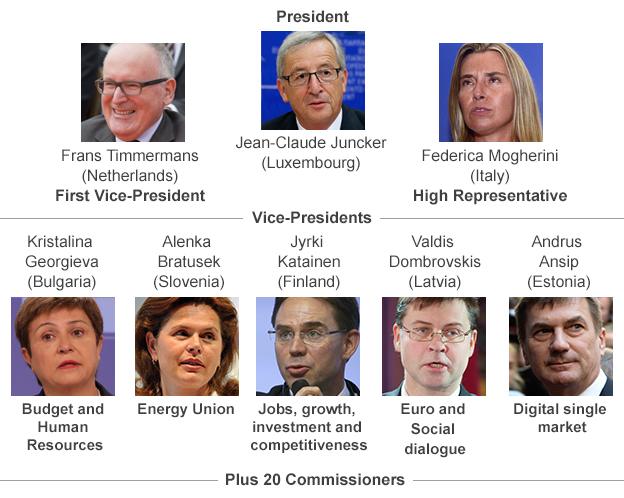
Vytenis Andriukaitis (Lithuania) Health and food safety
Miguel Arias Canete (Spain) Climate action and energy
Dimitris Avramopoulos (Greece) Migration and home affairs
Elzbieta Bienkowska (Poland) Internal market, industry, entrepreneurship and SMEs (small and medium-sized businesses)
Corina Cretu (Romania) Regional policy
Johannes Hahn (Austria) European neighbourhood policy and enlargement negotiations
Jonathan Hill (UK) Financial stability, financial services and capital markets union
Phil Hogan (Ireland) Agriculture and rural development
Vera Jourova (Czech Republic) Justice, consumers and gender equality
Cecilia Malmstroem (Sweden) Trade
Neven Mimica (Croatia) International co-operation and development
Carlos Moedas (Portugal) Research, science and innovation
Pierre Moscovici (France) Economic and financial affairs, taxation and customs
Tibor Navracsics (Hungary) Education, culture, youth and citizenship
Guenther Oettinger (Germany) Digital economy and society
Maros Sefcovic (Slovakia) Transport and space
Christos Stylianides (Cyprus) Humanitarian aid and crisis management
Marianne Thyssen (Belgium) Employment, social affairs, skills and labour mobility
Karmenu Vella (Malta) Environment, maritime affairs and fisheries
Margrethe Vestager (Denmark) Competition

